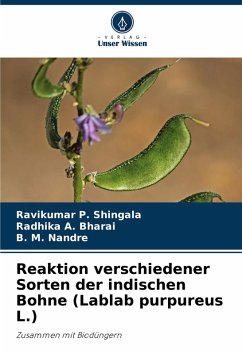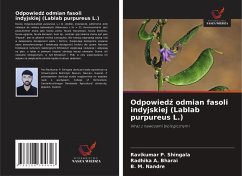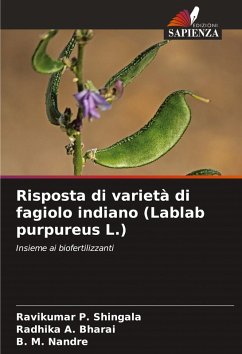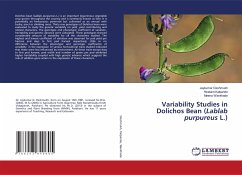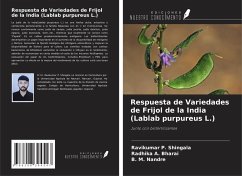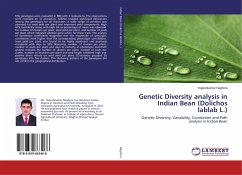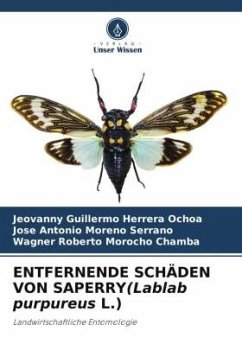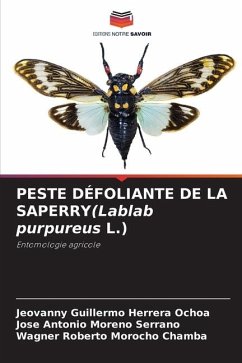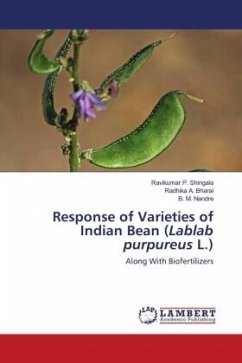
Response of Varieties of Indian Bean (Lablab purpureus L.)
Along With Biofertilizers
Versandkostenfrei!
Versandfertig in 6-10 Tagen
40,99 €
inkl. MwSt.

PAYBACK Punkte
20 °P sammeln!
Indian bean (Lablab purpureus L.) is a sweet, bushy semi-erect herb belongs to family Fabaceae with 2n = 22 chromosomes. It is commonly known as Field bean, Hyacinth bean, Dolichos bean, Egyptian bean, Bonavist bean, Sem etc. while locally known as 'Papadi'. It is predominantly a self-pollinated crop. Biofertilizers play an important role in increasing availability of nitrogen and phosphorus. They increase the biological fixation of atmospheric nitrogen and enhance phosphorus availability to the crop. The seeds treated with bacterial culture of Rhizobium increase nodulation and influence yield...
Indian bean (Lablab purpureus L.) is a sweet, bushy semi-erect herb belongs to family Fabaceae with 2n = 22 chromosomes. It is commonly known as Field bean, Hyacinth bean, Dolichos bean, Egyptian bean, Bonavist bean, Sem etc. while locally known as 'Papadi'. It is predominantly a self-pollinated crop. Biofertilizers play an important role in increasing availability of nitrogen and phosphorus. They increase the biological fixation of atmospheric nitrogen and enhance phosphorus availability to the crop. The seeds treated with bacterial culture of Rhizobium increase nodulation and influence yield as well as economize the input cost of fertilizer to some extent. Evaluation of the role of biofertilizers including Rhizobium and PSB to harness their effect in enhancing crop yields will be a challenging task.



